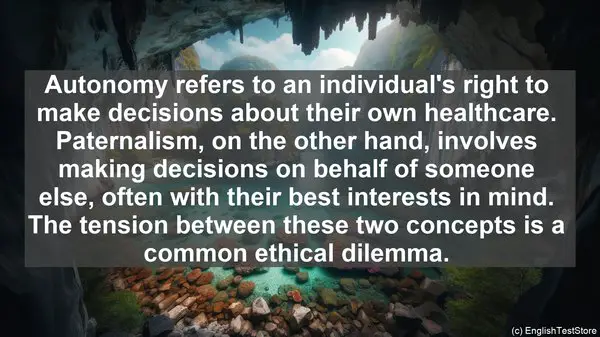Introduction to Bioethical Studies
Welcome to today’s lesson on the top 10 commonly confused words in bioethical studies. As students in this field, it’s crucial to have a strong grasp of these terms, as they form the foundation of our discussions and analyses.
1. Morality vs. Ethics
While these terms are often used interchangeably, they have distinct meanings. Morality refers to personal beliefs about right and wrong, while ethics is a broader framework that considers societal norms and values. Understanding this distinction is essential when examining bioethical dilemmas.
2. Beneficence vs. Non-maleficence
These principles are central to bioethics. Beneficence is the duty to do good, while non-maleficence is the duty to do no harm. Striking the right balance between these two is crucial when making decisions in healthcare settings.
3. Autonomy vs. Paternalism
Autonomy refers to an individual’s right to make decisions about their own healthcare. Paternalism, on the other hand, involves making decisions on behalf of someone else, often with their best interests in mind. The tension between these two concepts is a common ethical dilemma.

4. Euthanasia vs. Assisted Suicide
While these terms are related to end-of-life decisions, they differ in the level of involvement. Euthanasia involves a third party, such as a physician, actively ending a patient’s life. Assisted suicide, on the other hand, involves providing the means for the patient to end their own life.
5. Confidentiality vs. Privacy
In the context of healthcare, confidentiality refers to keeping patient information private, especially from unauthorized individuals. Privacy, on the other hand, encompasses a broader concept of personal space and autonomy. Both are crucial in maintaining trust in healthcare settings.
6. Informed Consent vs. Assent
Informed consent is the process of ensuring that individuals have all the necessary information before making a decision. Assent, on the other hand, is obtaining agreement from individuals who may not have the capacity to provide full consent, such as children or individuals with cognitive impairments.
7. Genetic Testing vs. Genetic Screening
While both involve analyzing an individual’s genetic information, they serve different purposes. Genetic testing is often done in response to a specific concern or question, while genetic screening aims to identify potential risks or conditions, even in the absence of symptoms.
8. Cloning vs. Reproductive Cloning
Cloning refers to the creation of an identical copy of an organism. Reproductive cloning specifically involves creating a cloned individual. The ethical implications of reproductive cloning are often at the center of bioethical debates.

9. Stem Cells: Embryonic vs. Adult
Embryonic stem cells are derived from early-stage embryos and have the potential to develop into any cell type. Adult stem cells, on the other hand, are found in various tissues and have more limited differentiation capabilities. The use of embryonic stem cells raises ethical concerns due to the destruction of embryos.
10. Public Health vs. Individual Rights
Bioethics often grapples with the tension between promoting public health and respecting individual rights. While public health measures may be necessary for the greater good, they can sometimes infringe on individual freedoms, leading to ethical dilemmas.
